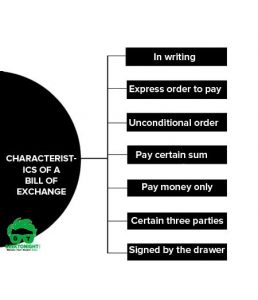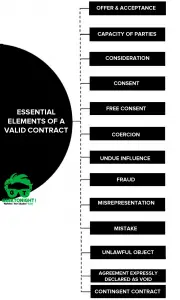What are Articles of Association?
Articles of Association are the rules and regulations or the bye-laws which govern the internal management of the company.
It is the second most important document to be filed with registrar at the time of registration of the company. It states the powers of directors, officers and of shareholders as to voting etc., the mode and form in which business is to be carried out and the mode, and the form in which changes in the internal regulations can be made.
Table of Content
- 1 What are Articles of Association?
- 2 Provisions related to Printing and Signature of Articles
- 3 Contents of Articles of Association
- 4 Procedures for the Alteration of Articles of Association
- 5 Limitations on Alteration of Articles
- 6 Difference between Memorandum and Articles of Association
- 7 Business Law Notes
- 8 Business Law Book References
It is not obligatory for public companies limited by shares to have their own Articles (Section 5). A public company limited by shares, may either frame its ‘Articles’ or adopt the rules and regulations contained in Table F of schedule 1 of the Companies act, 2013 (Section 5).
Articles shall be printed, divided into paragraphs, numbered consecutively and signed by each subscriber of the Memorandum of Association in the presence of at least one witness who shall attest the signature and shall likewise, add his address and occupation.
Contents of Articles of Association
Contents of Articles of Association are:
- The exclusion, whole or in part, of Table F
- Share Capital
- Rights of Different classes of shareholders
- Allotment of shares
- Calls on shares
- Lien on shares
- Forfeiture of shares
- Transfer of shares
- Surrender of shares
- Share certificate
- Issue of share warrants
- Increase or decrease of share capital
- Conversion of shares into stock
- Consolidation and sub-division of shares
- Borrowing powers
- General meetings, proceedings, thereof and votes, proxies and polls
- Appointment of managerial personnel
- Appointment and remuneration of auditors
- Dividends and reserves
- Accounts and audit
- Adoption or execution of preliminary contracts
- Capitalization of profits
- Notices
- Common seal
- Winding up
Procedures for the Alteration of Articles of Association
Section 8, Companies Act, 2013 states that a company cannot alter the Articles of Association without obtaining a prior permission from the central government. It should be noted that a company can never place the existing articles. It can only change the regulation contained in the Articles. The changes must not increase the liability of any member and must not provide for the expulsion of a member by the company.
A notice calling general meeting should be sent to every member at least 21 days prior to the meeting wherein the proposed special resolution and the explanation relating to the implication of the proposed change be given.
In case of listed company, notice shall be send to the respective stock exchange. After the Articles have been altered, copy of amended articles should be filed with the stock exchange. A copy of the special resolution along with explanatory statement in form MGT 14 must be filed with the registrar.
Limitations on Alteration of Articles
A company can alter or add to the Articles of association at any time by passing a special resolution. However the right to alter the Articles is subject to the following limitations or restrictions:
- Not inconsistent with provisions of any act
- Not illegal or against public policy
- Not inconsistent with the order of a government or a court
- Must be bonafide
- Must not be fraudulent
- Must not result in breach of contract
- Must not increase liability of the members
Not inconsistent with provisions of any act
The alteration must not be inconsistent with any provisions of the Companies Act or any other statute. However, Articles may impose on the company conditions stricter than those provided under the law. If the alteration in Article will be Ultra vires the memorandum, then it would be void and inoperative.
Not illegal or against public policy
The alteration must not contain anything illegal or against public policy.
Not inconsistent with the order of a government or a court
The alteration must not be inconsistent with an order of the Central Government or a tribunal as the case may be.
Must be bonafide
The alteration must be bonafide for the benefit of the company as a whole. The alteration made shall be valid even if it is likely to affect adversely the interest of some of the members.
Must not be fraudulent
If the alteration is for the benefit of majority and it constitutes a fraud on the minority or inflicts hardship on the minority without any corresponding benefit to the company as a whole, it shall be invalid.
Must not result in breach of contract
The alteration must not cause a breach of contract with an outsider. Such an alteration shall be void and the company shall be liable to pay damages to the other party.
Must not increase liability of the members
An alteration which has the effect of increasing the liability of the members to contribute to share capital, is not binding on the present members, unless he has given his consent in writing.
An alteration in the articles which has the effect of converting a public company into a private company shall not be effective unless such an alteration has been approved by tribunal.
Difference between Memorandum and Articles of Association
| Memorandum | Articles of Association |
|---|---|
| The Memorandum is the charter of the company which defines its objects and powers. | The Articles are the bye – laws of the company, for the internal management of the affairs, for achieving the objects set out in the Memorandum. |
| Memorandum is the supreme document of the company. | The Articles are subordinates to the Memorandum. |
| The Memorandum defines the relationship between the company and the outsiders. | The articles define the relationship between the company and its members and among the members themselves. |
| A new company must prepare its Memorandum and file it with the Registrar before the registration of the company becomes effective. | Articles are not required to be filed for the purpose of registration. A company can adopt Table ‘F’ if it does not prepare its own articles. |
| Any act of the company which is Ultra Vires the Memorandum is wholly void and cannot be ratified even by the whole body of shareholders. | Any act which is Ultra Vires the Article, but Intra Vires the Memorandum, can be ratified by the shareholders by passing a special resolution. |
| The Memorandum cannot be altered easily. But alteration of Articles is not difficult. | Articles can be passed by passing a special resolution and the approval from the Central Government is not necessary. |
Business Law Notes
(Click on Topic to Read)
Business Law Book References
- Goel, P. K. (2006). “Business Law for Managers” Wiley
- Sheth, T. (2017). “Business Law” (2ed.) Pearson.
- Kuchhal. M.C. & Prakash. “Business Legislation for Management” (2ed.) Vikas Publishing.
Go On, Share article with Friends
Did we miss something in Business Law Note? Come on! Tell us what you think about our article on Articles of Association | Business Law in the comments section.
Business Law Notes
(Click on Topic to Read)
- What is Business Law?
- Indian Contract Act 1872
- Essential Elements of a Valid Contract
- Types of Contract
- What is Discharge of Contract?
- Performance of Contract
- Sales of Goods Act 1930
- Goods & Price: Contract of Sale
- Conditions and Warranties
- Doctrine of Caveat Emptor
- Transfer of Property
- Rights of Unpaid Seller
- Negotiable Instruments Act 1881
- Types of Negotiable Instruments
- Types of Endorsement
- What is Promissory Note?
- What is Cheque?
- What is Crossing of Cheque?
- What is Bill of Exchange?
- What is Offer?
- Limited Liability Partnership Act 2008
- Memorandum of Association
- Articles of Association
- What is Director?
- Trade Unions Act, 1926
- Industrial Disputes Act 1947
- Employee State Insurance Act 1948
- Payment of Wages Act 1936
- Payment of Bonus Act 1965
- Labour Law in India
Business Law Notes
(Click on Topic to Read)
- What is Business Law?
- Indian Contract Act 1872
- Essential Elements of a Valid Contract
- Types of Contract
- What is Discharge of Contract?
- Performance of Contract
- Sales of Goods Act 1930
- Goods & Price: Contract of Sale
- Conditions and Warranties
- Doctrine of Caveat Emptor
- Transfer of Property
- Rights of Unpaid Seller
- Negotiable Instruments Act 1881
- Types of Negotiable Instruments
- Types of Endorsement
- What is Promissory Note?
- What is Cheque?
- What is Crossing of Cheque?
- What is Bill of Exchange?
- What is Offer?
- Limited Liability Partnership Act 2008
- Memorandum of Association
- Articles of Association
- What is Director?
- Trade Unions Act, 1926
- Industrial Disputes Act 1947
- Employee State Insurance Act 1948
- Payment of Wages Act 1936
- Payment of Bonus Act 1965
- Labour Law in India








